The ABC Movie of the Week
Big Movies for the Small Screen
Michael McKenna

THE SCARECROW PRESS, INC.
Lanham Toronto Plymouth, UK
2013
Published by Scarecrow Press, Inc.
A wholly owned subsidiary of The Rowman & Littlefield Publishing Group, Inc.
4501 Forbes Boulevard, Suite 200, Lanham, Maryland 20706
http://www.scarecrowpress.com
Estover Road, Plymouth PL6 7PY, United Kingdom
Copyright 2013 by The Scarecrow Press, Inc.
All rights reserved. No part of this book may be reproduced in any form or by any electronic or mechanical means, including information storage and retrieval systems, without written permission from the publisher, except by a reviewer who may quote passages in a review.
British Library Cataloguing in Publication Information Available
Library of Congress Cataloging-in-Publication Data
McKenna, Michael, 1969
The ABC movie of the week : big movies for the small screen / Michael McKenna. pages cm
Includes bibliographical references and index.
ISBN 978-0-8108-9156-2 (cloth : alk. paper) -- ISBN 978-0-8108-9157-9 (ebook) 1. Made for TV movies--United States. 2. Television broadcasting of films--Social aspects--United States. 3. ABC Television Network. I. Title.
PN1992.8.F5M37 2013
791.45'75'0973--dc23
2013013843
 The paper used in this publication meets the minimum requirements of American National Standard for Information Sciences Permanence of Paper for Printed Library Materials, ANSI/NISO Z39.48-1992.
The paper used in this publication meets the minimum requirements of American National Standard for Information Sciences Permanence of Paper for Printed Library Materials, ANSI/NISO Z39.48-1992.
Printed in the United States of America
To my mother, Maureen, for letting me watch too much TV
Acknowledgments
I would like to thank my editor, Stephen Ryan, for inspiring this book and having faith in me to deliver. I would also like to thank all of the MovieoftheWeek fans who take the time to post their favorite films on streaming websites for all to view. Without their commitment, many of these films would be inaccessible to the general public forever.
Introduction
In November 1974, Jerry Buck, a nationally syndicated television writer for the Associated Press, wrote a retrospective article on the establishment of the made-for-TV movie as a staple of network television. Buck was no doubt motivated by the prolific production of over 400 made-for-TV movies aired by the three major American networks in the previous five years. Bucks article encapsulates how most critics viewed the TV movie at the time, and concurrently, the historical reputation of the genre. Bucks analysis reveals an already standardized hierarchical segregation between quality TV movies and those labeled as B movies, the appellation applied to poorly made, low-quality feature films churned out by Hollywood. His assessment of the TV movie genre was standard form: At its best, it is thought provoking, diverse, offering in-depth character study. At its worst, it is clich ridden and melodramatic. Buck then provides a perfect tagline to sum up the critical consensus on the TV movie, Nobody liked it but the audience.
The degraded cultural and critical status of the TV movie has contributed to an ambivalent, if not dismissive attitude on the part of popular culture scholars toward the genre as a whole. The result is a dearth of cultural studies on the formative years of this important development in television history. The paucity of dedicated TV movie studies is particularly glaring when compared with the voluminous work on other topics in television studies, not to mention the endless studies done on the TV movies distant cousin, theatrical feature films. Here again, when compared with feature films, the TV movie comes up against a seeming scholarly elitism wherein feature films are considered art, cultural barometers worthy of study and analysis, while TV movies are marked as the basest commerce not worthy of academic study, but rather to be deposited on the scrapheap of nostalgia and kitsch. For those who may doubt the cultural significance and reach of the TV movie, consider that in the mid-1970s, as the genre was proliferating, a TV movie might have been deemed a ratings disappointment if it had only drawn an audience of twelve to thirteen million viewers. In the modern medium, with a larger, although fragmented audience, an equivalent viewership would almost surely land in the top ten rated programs for a week. It should also be noted, the collective viewership of TV movies in the 1970s far outpaced the number of people viewing feature films in a theatre setting. The cumulative analysis affirms that TV movies were being consumed by millions of Americans, and, therefore, the cultural reach is widespread, far exceeding feature films. Nevertheless, based on the limited scholarly work produced, the genre is evidently still not deemed worthy of deeper study and analysis.
Despite the above critique on the lack of TV movie studies, there are a collection of valuable and widely cited works that engage the genre. These works fall into two categories. The first category encompasses works focusing on individual TV movies or small groups of TV movies primarily used to amplify a broader cultural study (e.g., gender, race, sexuality, etc.). Prominent works in this category include Douglas Gomerys BrianSong:Television,Hollywood,andtheEvolutionoftheMovieMadeforTelevision; a chapter dedicated to TV movies in Todd Gitlins influential book, InsidePrimeTime; several segments in Elana Levines WallowinginSex, a study of the sexual culture of America in the 1970s; Sally Bedells UptheTube, which has a chapter on the evolution of the TV movie; and television writers and producers Richard Links and William Levinsons StayTuned, an excellent firsthand account on TV movie production and the politics of network television.
Most of the critical and scholarly attention given to TV movies is focused on a relative handful of movies that became the standard bearers of the genre. Over several decades since the emergence of the genre, a number of TV movies and miniseries movies such as MySweetCharlie,BriansSong,ThatCertainSummer,Roots,TheBurningBed, and AngelsinAmerica, to name a few, have been lauded by critics and examined by scholars. However, given the volume of TV movies produced (more than five thousand in total), only a small percentage have been researched and analyzed on an academic level. Typically, the TV movies receiving critical acclaim or scholarly analysis deal with or are used to illustrate arguments on major social issues such as race, gender, sexual preference, poverty, and similar topics. There is sound reasoning for this utility, as it is easier to take narrative and commercial risks in a TV movie. A single-event production such as a TV movie can effectively present controversial themes and characters without the impediment of preconceived notions toward characters in a regularly scheduled series. Additionally, network programmers only have to worry about a potential one-time ratings disappointment, not a lingering taint of controversy or viewer disapproval that might be attached to an established series, potentially limiting viewership in the future. Thus, over time, made-for-TV movies became a valuable tool for presenting alternative or divisive subject matter. However, the vast majority of TV movies are based on more mundane, superficial, even frivolous topics, and thus are likely to be discarded as cultural detritus. Regrettably, this general dismissal of the lesser TV movies ignores the reality that most peoples lives are mundane, occasionally superficial, and frivolous. Accordingly, the mass of viewers are much more likely to relate to, and be influenced by the lesser TV movies. Therefore, instead of disregarding the lesser movies, it should be asked, how did they reflect the lives of their audience? How did they influence or shape the lives of the audience? With more dedicated studies, any number of academic fields would glean a trove of insight on American opinions, mores, and desires over four decades.

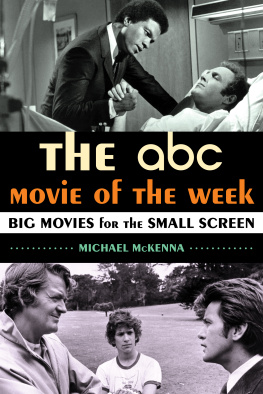


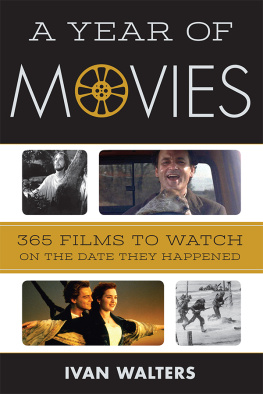
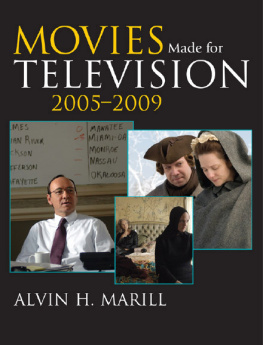
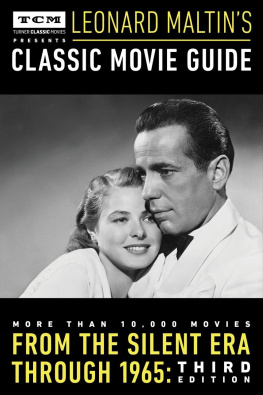
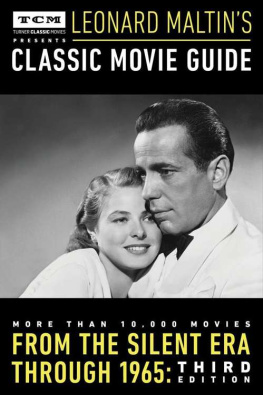
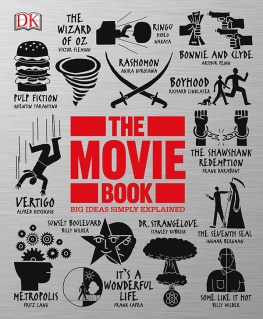
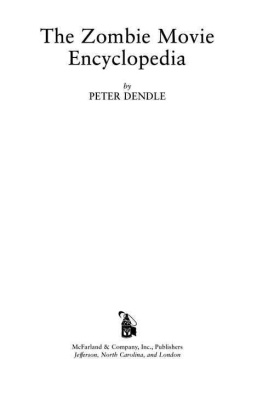

 The paper used in this publication meets the minimum requirements of American National Standard for Information Sciences Permanence of Paper for Printed Library Materials, ANSI/NISO Z39.48-1992.
The paper used in this publication meets the minimum requirements of American National Standard for Information Sciences Permanence of Paper for Printed Library Materials, ANSI/NISO Z39.48-1992.